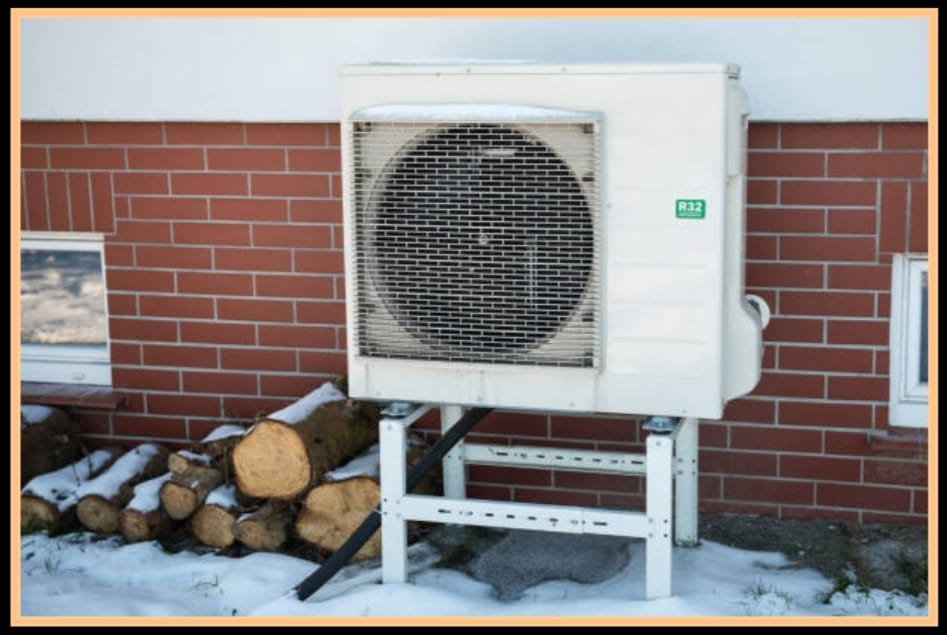As people become more conscious of their energy consumption and pollution to the environment, often for the benefit of saving on costs of electricity, more people are using heat pumps for heating. Heating and cooling systems save money and are also efficient since heat pumps can be used for both heating and cooling. As technology as well as manufacturing improves, residential heat pump factories are delivering systems that meet more efficient systems for the contemporary home. In this article, we will discuss why heat pumps are perfect appliances for home heating, their mechanism of operation, and advantages.
How Does a Heat Pump Work
Like air conditioners, although they work in reverse, heat pumps don’t generate heat, but move it from one place to another. Furthermore, this makes them more efficient than the conventional heating systems for heating homes and buildings among other uses. A heat pump takes heat from the outside air, ground, or water and delivers it indoors to warm your house during winter. While in summer the process is switched round and the system extracts heat from your home to cool it.
This same principle applies for heating to a particular type of heat pump, the residential heat pump water heater. Generating heat from the air and applying it on water stored in a tank, the unit relies on only a fourth of the energy required by traditional electric water heaters. This dual use is what makes heat pumps such efficient and cheap systems to use in a home or building. Most residential heat pump factories are now exploring how to develop such systems with efficiency for moderate to extreme weather.
Benefits of Using Heat Pumps for Dwelling Heating
When it comes to heating and cooling your home, there are many benefits to be had when you invest in a heat pump. First of all they are an energy efficient apparatus of the highest rank, which means that during their work they heat and cool homes without consuming too much energy. Heat pumps do not generate heat like the gas or electric systems which involve producing heat, making them use far much less energy. This can result in very big savings in bills, especially electricity and water where the weather is moderate.
Heat pumps have other benefits too: they are eco-friendly. They depend on renewable energy sources such as air or ground heat in order to minimize the levels of greenhouse gases. In the same manner, new systems from the top residential heat pump manufacturers utilize environment friendly refrigerants that are more friendly to the environment.
The second major benefit is that heat pumps are variable appliances that can serve two purposes simultaneously. They are compact, so there is no need for two different units for air conditioning and heating as a furnace will do both. This decreases the space that is used and the complexity of the maintenance as well as the costs of installation. Homeowners can also combine heat pumps with solar panels or any other forms of renewable energy, which means added energy efficiency.
Factors to Consider When Choosing a Residential Heat Pump
If you feel you need a heat pump in your home, there are some factors that you need to consider when selecting one. First of all, consider the size of your home and the energy you will require to power your house. An average sized home will need a system that is bigger than that required for a small home, but a small home may also use a small system.
Next, evaluate your climate. Heat pumps should be installed with low-temperature performance in colder regions like cold climate air source heat pumps. The majority of the residential heat pump factories design systems that have been developed for particular climates.
Other specifications that need to be argued include energy efficiency ratings including SEER (Seasonal Energy Efficiency Ratio) for cooling and HSPF (Heating Seasonal Performance Factor) for heating. Higher ratings make it more efficient and save more operating costs in the long run. The next best features to seek for in these systems include variability such as variable speed compressors and smart controls.
Lastly, it is important to look at the reputation of the manufacturer. There are reliable and reputable factories of residential heat pump production that provide long lasting systems with good guarantees and post-sale service. You can avoid buying the wrong heat pump brand by comparing the reviews and benefits between the brands available today.
Why Heat Pumps Are a Smart Long-Term Investment
In spite of the fact that heat pumps may be somewhat more expensive than conventional systems initially, their cost is vastly inferior in the long run. Their energy efficiency means that every month’s energy cost is lower and many governments reward Energy Efficient heating system installations. Further, they have long life spans and have found some lasting for a period of 15-20 years or even more than that depending on the type of system.
Heat pumps also add value to your home. They are favorites among potential buyers so it is a good investment for homeowners who are planning to sell their homes in the near future. Further, integrating other renewable energy systems with solar power with the heat pump broadens these advantages.
Furthermore, constant technological advancement in heat pump technology in some of the major residential heat pump factories has led to improvement of such heat pump systems in regards to efficiency, flexibility, and environment. When you choose to install a heat pump for your home, you’re not only increasing the comfort of your home but also the wellbeing of the environment.
Conclusion
Heat pumps are among the best available methods of heating homes today as they are environmentally friendly, efficient and versatile. Technological enhancement in heat pump production means that factories creating residential heat pumps are focusing on creating systems to meet the modern homeowner’s need for full home heating and specific technologies like the residential heat pump water heater. Moreso, homeowners can make the right decision of the best heat pump to use depending on the climate, energy needs, and type of system to achieve comfort, and cost savings while promoting sustainability in their homes. In fact, whether you are simply improving your existing home heating or constructing a new home, a heat pump is one of the best solutions for a wide range of reasons.







